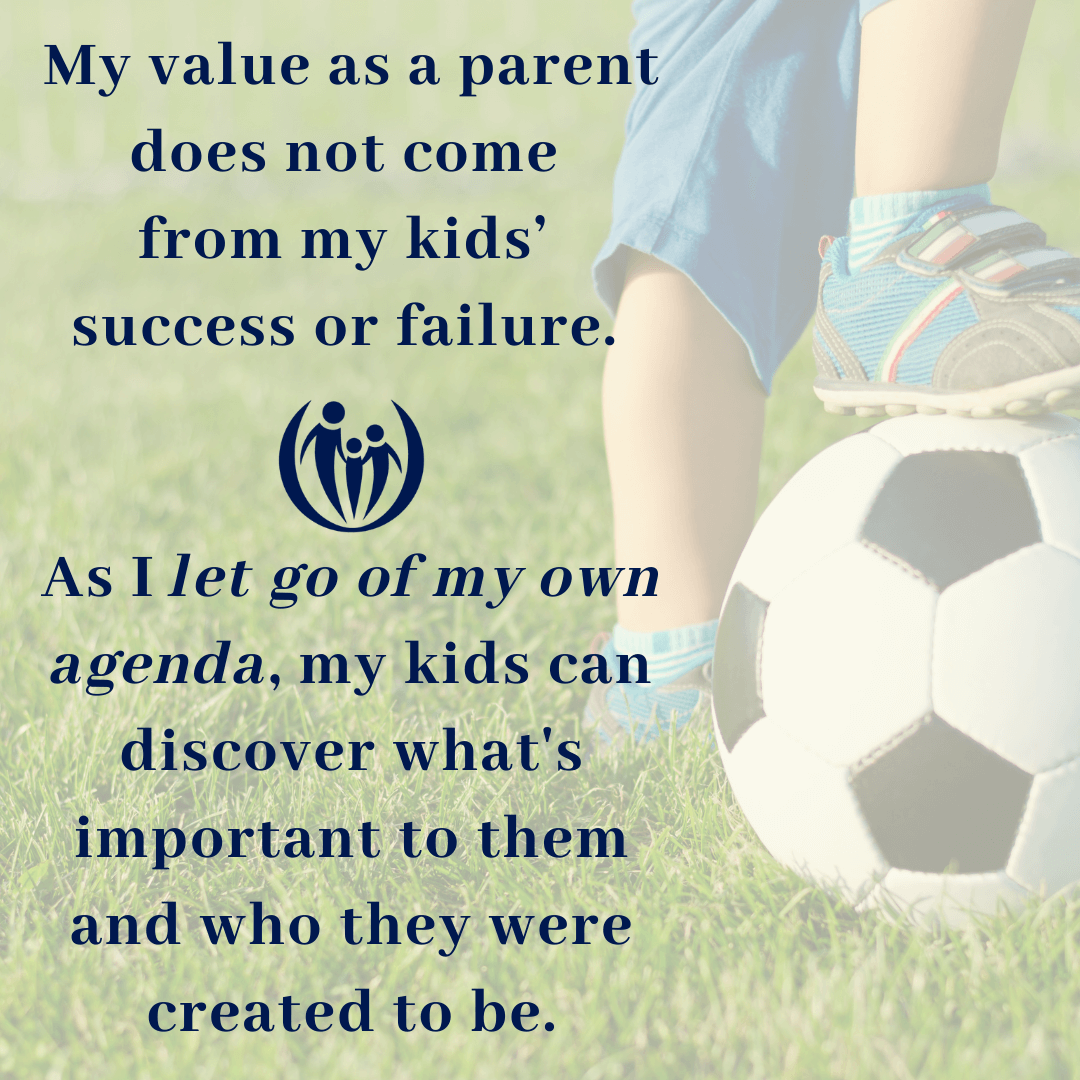
Youth Sports: Is It All Worth It?

Like many parents, I have a strong interest in athletics. I competed in four sports in high school and continued with track and field in college. My three kids have all competed in a variety of sports and to my great delight, track and field has been one of them. There are times, however, when I am a little too invested in the outcomes. In those times I need to check my own motives about their success or failure.
I was reminded of this when I came across an article entitled “Putting Kids Back Into Kids’ Sports,” which examines what the article calls the “adultification” of our children in youth sports:
“It’s the introduction of adult values into kids’ games,” says John O’Sullivan (author of Changing the Game). “When I grew up, it was children competing against children. Now, more often than not, it’s adults competing against other adults through their children.”
There are many positives to be gained by our kids participating in sports; teamwork, cooperation, work ethic, physical fitness, social opportunities, and sportsmanship are among the ones I value most. But, are we as parents competing against each other through our children as the author suggests?
My wife and I both tend to be quite competitive. Even I have to remind myself that there are other reasons (see my list above) to be involved in sports than to win at all costs, receive a college scholarship, and become a world class athlete. For my kids, the main reason they have been involved in sports is to have fun! I’ve seen the look in their eyes or in their slumped shoulders when they feel the pressure to perform. At that point, I realize it has become more about me and less about them.
Whether it’s youth sports, or another activity like music or drama, let’s examine how a parent might respond while using the Connected Families Framework.
YOU ARE SAFE WITH ME
“What’s going on in me?” Motives. Identity. Value. Sometimes it is hard to understand ourselves and what our real motives are. It is important to be aware of what is going on in ourselves in relation to our kids’ involvement in sports. Ask yourself these questions (and perhaps discuss with a spouse or trusted friend) to gain perspective about what is going on in you and where you might be getting your value:
- Why is my child involved in this particular sport? How might my child answer that same question?
- Do I feel more valuable when my children win and less valuable when they lose or underperform?
- Where does my value come from? Is it from my kids’ success/failure or from my relationship with Christ?
YOU ARE LOVED NO MATTER WHAT
Our kids are learning about what makes someone valuable and, in our culture, people that excel in athletics are often put on a pedestal. But much like our own identity, our kids’ identity needs to be rooted in something more secure than the shifting winds of culture and others’ perspectives of their worth. Your kids need to be reminded of their true identity as a beloved son or daughter and that their worth or value doesn’t come from what they do or don’t do. Their security depends on them understanding and knowing they are loved no matter what. How would you respond to the following questions?
- Would your child choose to participate in a sport or activity if not for your influence?If your child no longer wanted to participate, would he/she feel comfortable or safe telling you?
- Is your child still enjoying the sport/activity or is it becoming burdensome?
- What is one practical way I could express love to my child when they’ve had a rough game or performance?
YOU ARE CALLED & CAPABLE
There are larger opportunities in youth sports other than simply winning or being the best. In 10th grade, I received a letter from a fan of an opposing team that called out my hustle and strong defense in a basketball game. (That was the extent of my basketball giftedness!) That note provided an insight for me: how I play the game can bless those who I’m playing against, as well as those who watch ! Perhaps our kids can grow in their understanding that playing the game isn’t just about them or their team. They can bless others with their attitude, effort, and skill. How might you respond to the following statements/questions?
- Do you tend to affirm effort or get excited about the end result/goal/score? The familiar saying applies here: Hard work beats talent when talent doesn’t work hard. You can watch this excellent TED talk “Building Your Inner Coach” by Brett Ledbetter to help you and your child look for and affirm hard work.
- What does your child need from you after the game/practice?Some kids like a step-by-step game review and others don’t want to talk about it.
- What do you think God’s purpose is for your family as you attend games and practices, interact with other parents and teammates, and live life at the field, court, or pool?
YOU ARE RESPONSIBLE
As parents, we set the tone for expectations and schedules. We are the ones responsible. It’s our job to strike a balance since our kids can’t see the big picture of what is most important both now and long-term. I love saying, “Yes!” to my kids, especially in areas that I really enjoy. But before saying yes it is important to understand the longer-term implications and how the yes may impact our family later on. Consider the following questions:
- What is the right amount of busy for your family? If you could draw it up and strike a nice balance, how many nights would your family have commitments? How many family dinners would you have each week?
- What would be an early sign you are becoming over-scheduled and out of balance?
- If you have been overtaken by youth sports, are there things you would like to change in how it’s currently going for your family? How can you move in a less hectic direction?
- If this is a struggle in your home, consider reading The 3 Big Questions for a Frantic Family by Patrick Lencioni.
Living out God’s purposes while involved with youth sports/activities
We are here, as God’s masterpieces, “to do good works which God has prepared in advance for us to do.” (Ephesians 2:10)
This might look like:
- Encouraging kids to view themselves as a positive force to those around them.
- Viewing yourself as “God’s Ambassador” to the parents and coaches with whom you interact.
- Praying on the way to the sporting event or activity, that God might show you the need of at least one person you could encourage that particular day.
So whether you are over-committed, or feel like your family has struck a pretty good balance, it is important to remember that there is a larger opportunity in our kids’ activities. Rather than survive these years you can thrive with some intentional planning, thought, and insight.
Frustrated by constant discipline challenges? Take 15 minutes to read our free ebook 4 Messages All Children Long to Hear: A Discipline That Connects Overview.









